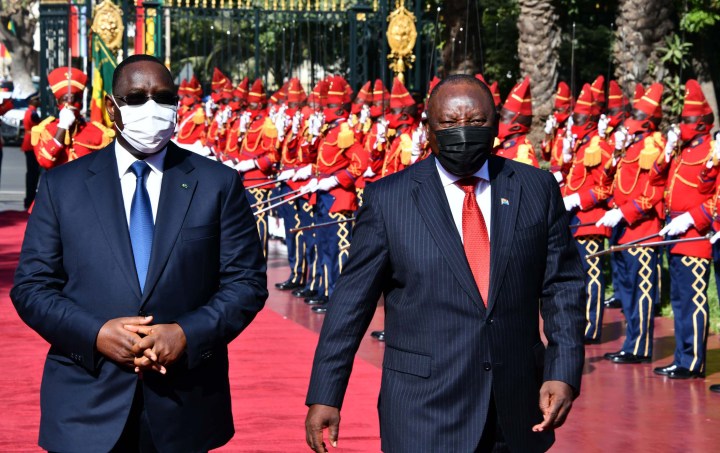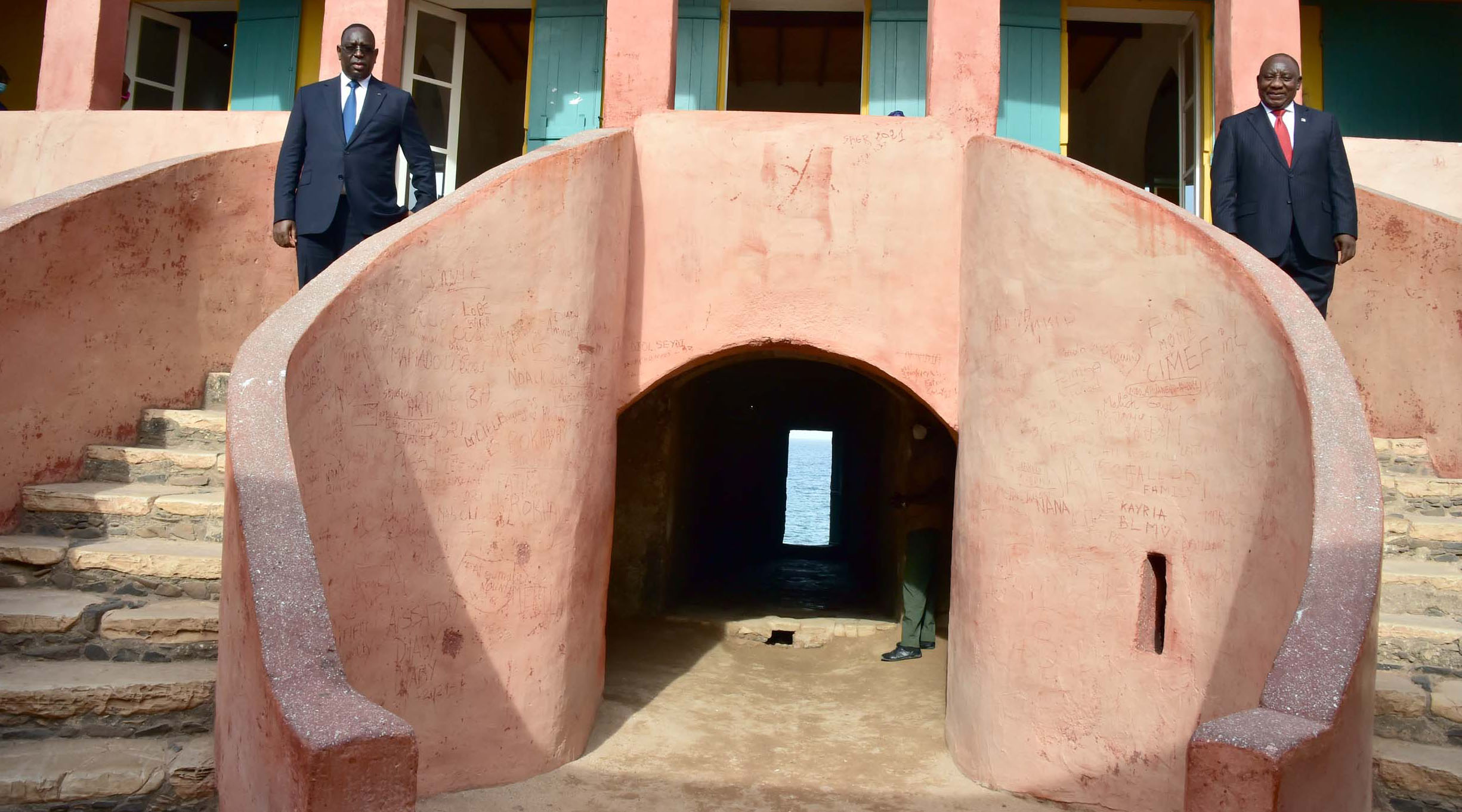HOME TRUTHS
Ramaphosa returns from West Africa tour to political and economic minefield while lamenting ‘catastrophic year’ for SA

The South African President steps straight into urgent meetings about Covid-19 and other challenges after returning from a week-long tour on Wednesday. Despite admitting that 2021 had been ‘very challenging and difficult’ he said he was still ‘upstanding, ready for the next fight’.
President Cyril Ramaphosa will walk straight into meetings of his Cabinet and the National Coronavirus Command Council, landing back from his four-country West Africa tour on Wednesday.
They are set to be briefed by a task team about ways to contain the rapidly rising number of Covid-19 cases back home, keeping that in mind with the economic fall-out of lockdowns and border closures.
Apart from exploring ways to boost trade and economic growth at home and on the rest of the continent, Ramaphosa spent the past week telling African and world leaders that those who have closed their borders to southern African travellers after the identification of the Omicron variant were practising “travel apartheid”.
He was more strongly outspoken against the West’s approach to fighting Covid-19 and its isolation of Africa in terms of vaccine hoarding and Omicron bans than at any time before, and he said this was because he found their reaction to the new variant “was quite disappointing and disturbing”. After South Africa’s announcement of the variant asking the world to take care, “instead of collaborate, they slap us with a ban that is going to, nevertheless, have an impact on our economy and tourism,” Ramaphosa told the South African journalists that formed part of his travelling contingent at a press conference on Tuesday afternoon on Senegal’s Gorée Island.

President of Senegal Macky Sall and President Cyril Ramaphosa during a Senegal state visit on 7 November 2021, visited Gorée Island. (Photo: Elmond Jiyane/GCIS)
“It got me to realise that those partners that say they are our partners are really there to look after their own interests.”
Ramaphosa said, “2021 has been a very challenging and difficult year,” and hinted somewhat jokingly that it isn’t quite over.
“Covid-19 has been a huge challenge to all of us in the way that it has gone up and down and given us respite and then thereafter the infection rate goes up,” he said.
The campaign ahead of the local government elections on 1 November has also been “quite draining” he said, because of the short time there was for campaigning. This was due to uncertainty amidst the Covid-19 pandemic over whether the elections would take place this year or next. The ANC went on to have its worst showing in an election yet, with a total of 45.85% of the vote.
“This added to the challenges we faced,” he said.
But he hinted that he was equal to the challenge, and, without mentioning the ANC’s elective conference due in almost exactly a year from now, said he was still “upstanding, ready for the next fight, the next challenge, trying to do the best for people of our country”.
On top of that the African Transformation Movement, sympathetic to former president Jacob Zuma’s faction of the ANC, is seeking to revive a motion of no confidence in Ramaphosa in Parliament, blaming him for high levels of irregular expenditure and the failure of state-owned enterprises.
Ramaphosa said steps to fix the economy will also look at the high unemployment rate, which third-quarter figures this week revealed is at yet another record high of 34.9%. This is “partly due to Covid” and it is a “catastrophe facing our country,” he said.
This will be addressed in the State of the Nation Address (in February 2022) and the National Budget Vote after that, Ramaphosa said, where government will be coming up with proposals on how to deal with this.
Ramaphosa said with regards to economic reforms that, by the time it gets to February, “many irons in the fire right now would have reached a point of melting or solidifying”, meaning that many processes were already underway, but some plans are still in flux. These include supporting the private sector to create more jobs, and formal reforms in the fields of spectrum issues and electricity, as well as for state-owned enterprises. Small and medium enterprises could also find it easier to do business as some of the barriers for doing business are relaxed.
To the unemployment woes, Ramaphosa added that “what we experienced in July” — riots described by government leaders as an insurrection — also contributed to the plummeting unemployment levels, which wiped out R50-billion from the country’s GDP and which required Treasury to layout R30-billion to bail out companies that were affected. “So all those things have combined to create just a catastrophic year,” he said, “but nonetheless, I’m still standing, and ready for the next round”.
When asked what he referred to as “the next fight”, Ramaphosa said: “The next fight is to strengthen the capability of government, and we face many challenges,” he said. “We face many challenges from the prosecution area, from the implementation area and the service delivery problems in our country are plentiful. All it requires is commitment, to strengthen the resolve and capability and the ability of the government to get things done.”
Ramaphosa returns to a National Prosecuting Service in disarray after the resignation last week of Hermione Cronje, amidst a slow pace of prosecutions of State Capture-related cases and ahead of the release of the State Capture Inquiry’s report by Deputy Chief Justice Raymond Zondo, expected later this month.
On top of that, the corruption and fraud case which has seen Ace Magashule suspended as ANC secretary-general appears to be teetering, while News24 reported that he has launched a full-on attack on the NPA in court papers, claiming that the case has been a “smear campaign and fishing expedition”. DM
Carien du Plessis is part of a group of nine media representatives from South Africa who are travelling with President Cyril Ramaphosa to report on his visit.



















Comments - Please login in order to comment.